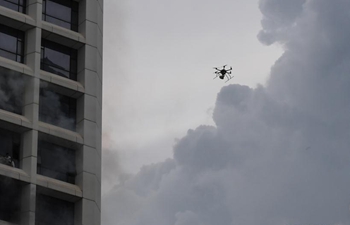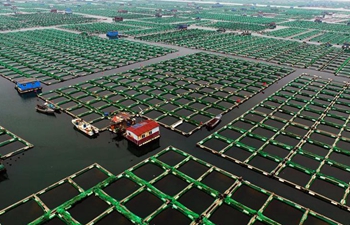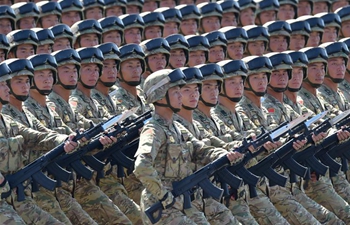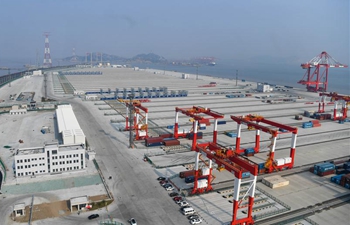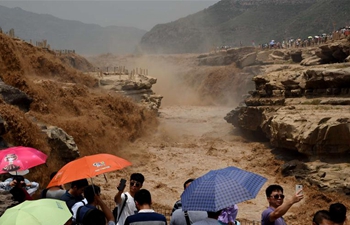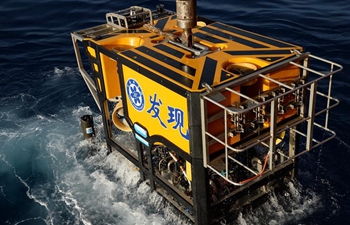ROME, July 28 (Xinhua) -- The Italian cabinet on Friday approved an operational mission to support the Libyan Coast Guard in the fight against migrant traffickers in the Mediterranean Sea.
In remarks to the press after the cabinet meeting, center-left Prime Minister Paolo Gentiloni explained that the mission will not entail "sending large-scale Navy fleets", and that it is being undertaken on request from the Tripoli-based government of Prime Minister Fayez al-Sarraj.
"The mission will make a very significant contribution to the fight against human traffickers and to manage the migratory flows towards our country," the Italian premier said.
"It is no more and no less than what the Libya government of national accord asked for," Gentiloni added.
Italy is at the forefront of the ongoing refugee crisis, because its southernmost islands are the first European landfall for thousands of people trying to cross the Mediterranean in a bid to flee war and famine in Africa and the Middle East.
The migrants and refugees entrust themselves to human traffickers to ferry them across, paying hefty sums and risking their lives on unseaworthy boats.
The main departure point is the Libyan coast.
Gentiloni did not disclose the details of the operation, which will be submitted to parliament's foreign and defense committees for approval next week.
The mission approval comes after Gentiloni met with Sarraj in Rome on Wednesday.
After that meeting, Gentiloni told the press that Italy may send Navy ships to fight migrant traffickers in the Mediterranean off Libya.
"Sarraj wrote me a letter a few days ago, requesting technical support with naval units from the Italian government," Italian news agency ANSA quoted Gentiloni as saying.
"The request is being assessed by our defense ministry," the Italian chief said. "The decisions we make will be assessed in agreement with Libya and, first of all, with (the Italian) parliament," Gentiloni continued.
Migration is a hot-button issue in Italy ahead of the next general election, to be held in spring 2018.
Italy's government has been calling unsuccessfully on its European partners to help shoulder the burden of tens of thousands of incoming refugees.
The UN-affiliated International Organization for Migration (IOM) reported that 113,433 migrants and refugees entered Europe by sea in 2017 through July 26, with almost 85 percent arriving in Italy and the remainder divided between Greece, Cyprus and Spain.
This compares with 251,172 arrivals across the region through July 26 last year, according to the IOM.






